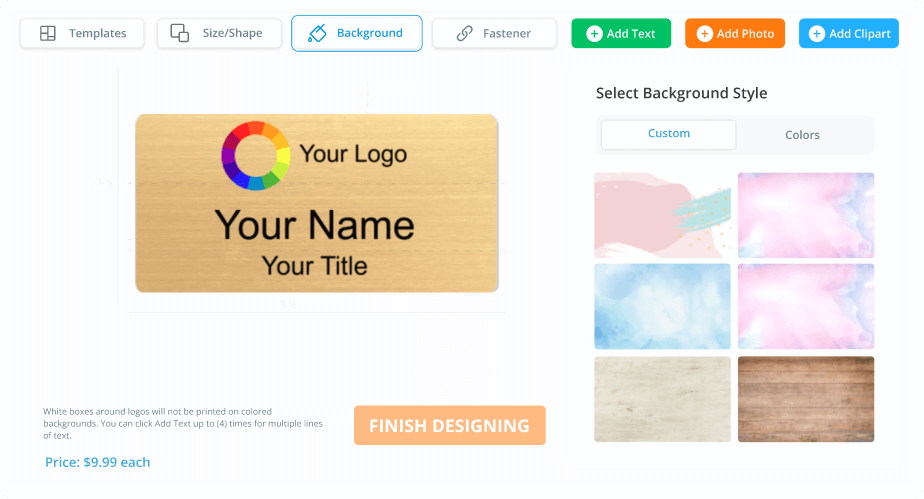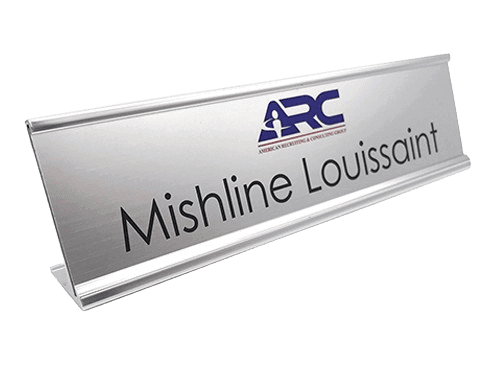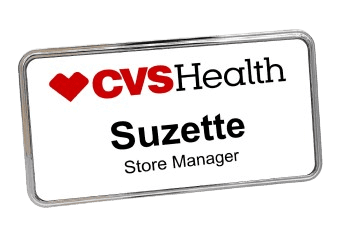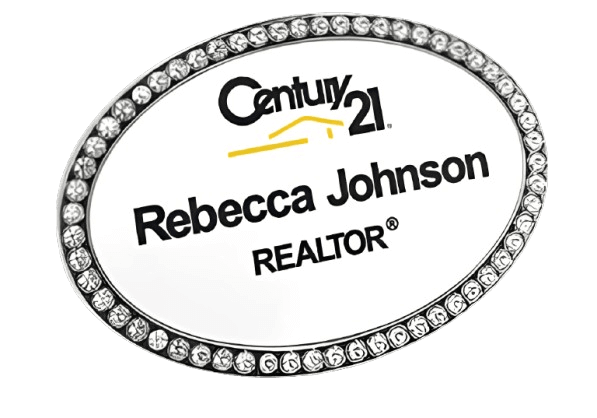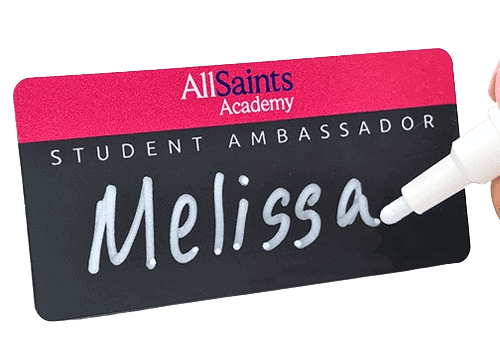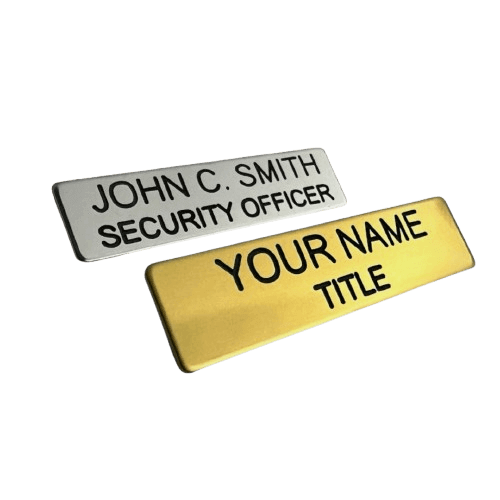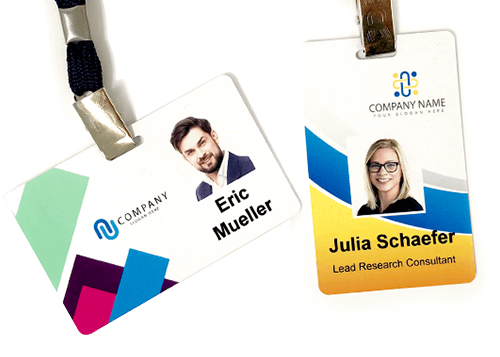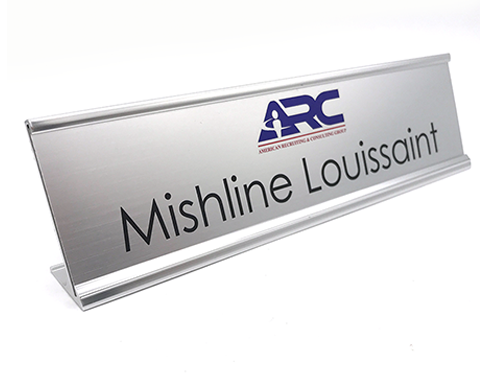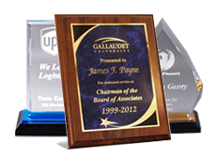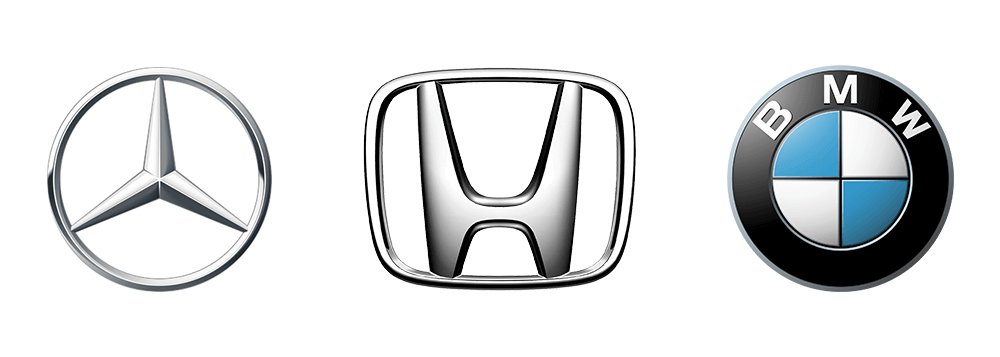Healthcare Name Badges for Private Practices: Complete Guide for Doctors, Dentists & Medical Offices (2025)
Professional identification solutions for private medical practices, dental offices, and specialty clinics that enhance patient trust and meet compliance requirements
31%
Higher Patient Trust
HIPAA
Compliant
24hr
Rush Available
While major hospitals produce badges internally, private medical practices, dental offices, and specialty clinics need professional external solutions. A Stanford Medical School study found that proper staff identification increases patient confidence by 31% and reduces anxiety during medical visits. This comprehensive guide covers everything private healthcare facilities need for professional, compliant name badge implementation.
Why Private Medical Practices Choose Professional Name Badges
Unlike large hospital systems with internal badge production, private practices benefit from professional external badge suppliers who understand healthcare's unique requirements. Recent Joint Commission surveys indicate that 87% of private practices outsource badge production for better quality and compliance.
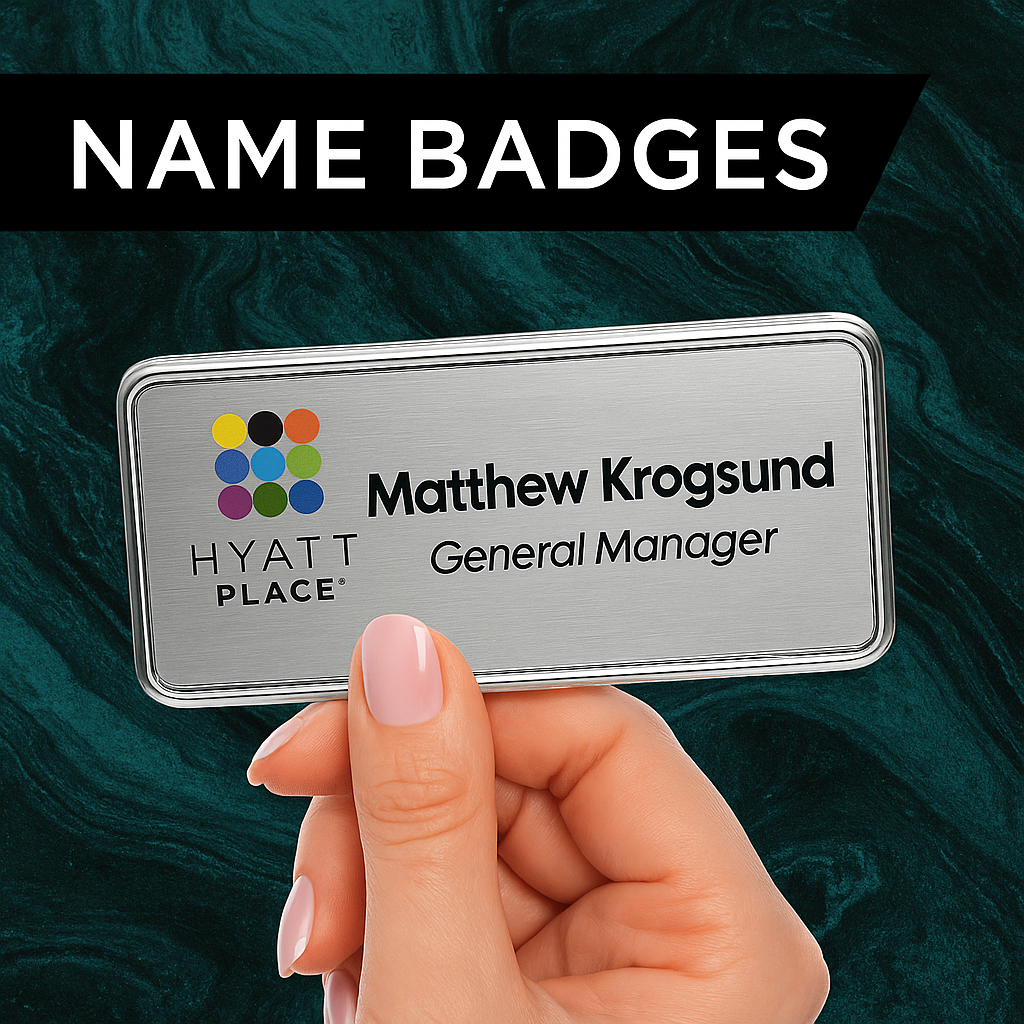
The Psychology of Patient Trust Through Identification
A 2024 Mayo Clinic study revealed fascinating insights about name badge impact on patient experiences:
- 89% of patients: Feel more comfortable when staff wear visible identification
- 76% report: Name badges help them remember who provided care
- 92% prefer: Practices where all staff wear professional badges
- 68% associate: Quality badges with quality care standards
- 84% appreciate: Clear role identification during visits
Research Insight: The Name Recognition Effect
Johns Hopkins research found that patients who could identify their care providers by name rated their satisfaction 42% higher and were 3x more likely to recommend the practice to others.
Private Practice vs. Hospital Badge Requirements
Private medical facilities have different identification needs than large hospitals. Understanding these distinctions helps practices choose appropriate badge solutions without overspending on unnecessary features.
Private Practice Needs
Focused on patient relationships and brand consistency
- Professional appearance matching practice branding
- Durability for 3-10 staff members
- Quick replacement for new hires
- Budget-conscious solutions
- Simple role identification
$9-15 per badge typical
Hospital System Needs
Complex security and access control requirements
- RFID/proximity card integration
- Multi-facility access control
- Department coding systems
- Thousands of badges annually
- Internal production facilities
In-house production
Medical Specialty Badge Requirements
Different medical specialties have unique identification needs based on their practice environment and patient interactions.
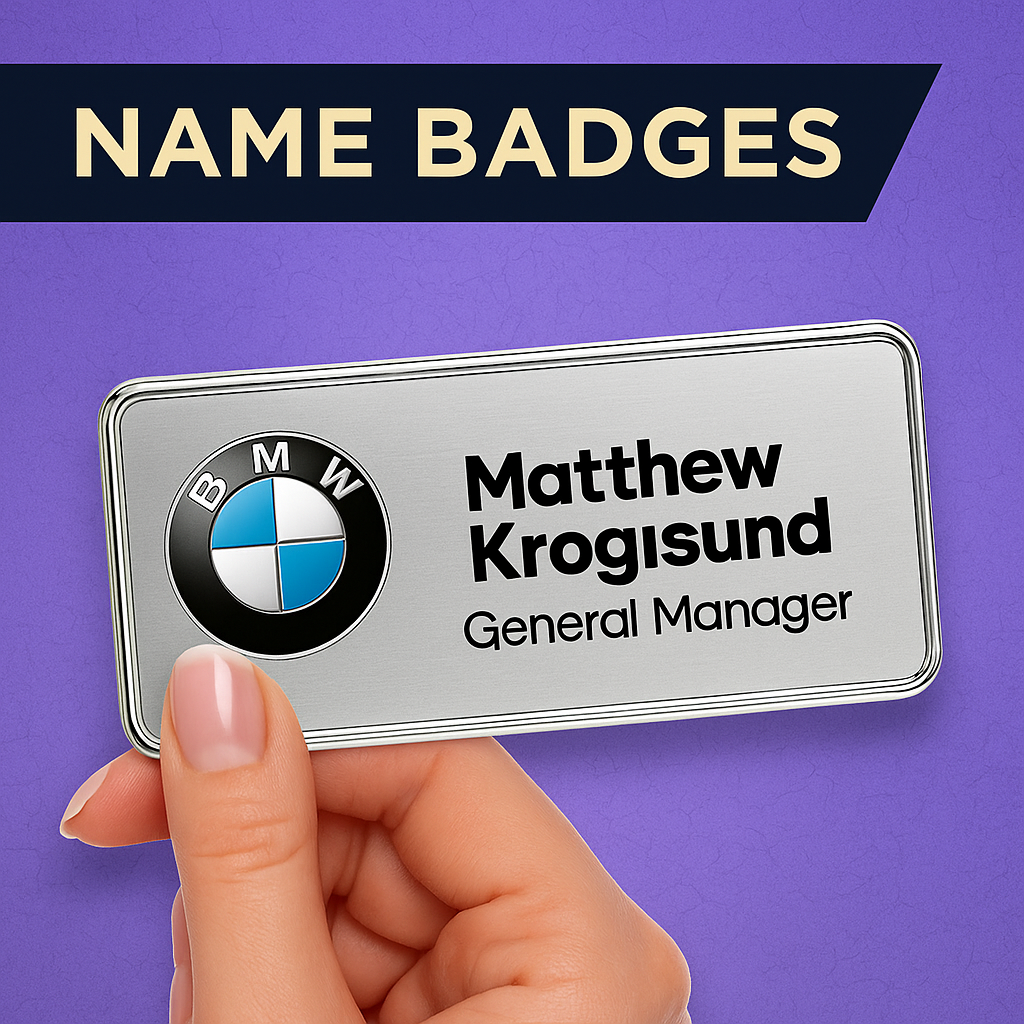
Dental Office Name Badges
Dental practices require badges that withstand frequent cleaning and disinfection while maintaining professional appearance.
- Material choice: Chemical-resistant plastics or anodized aluminum
- Antimicrobial coating: Essential for infection control protocols
- Clear role designation: DDS, DMD, RDH, DA clearly displayed
- Magnetic fasteners: Protect expensive scrubs from pin damage
- Fun options: Tooth-shaped badges for pediatric practices
Private Physician Offices
Family medicine, internal medicine, and specialty physicians need badges that convey authority while remaining approachable.
- Executive materials: Metal badges for physicians, plastic for staff
- Credential display: MD, DO, PA, NP prominently shown
- Photo inclusion: Helps patients recognize providers
- Department coding: Different colors for clinical vs. administrative
Urgent Care & Walk-in Clinics
High-turnover environments need efficient badge solutions for rotating staff and frequent new hires.
- Reusable systems: Badge holders with replaceable inserts
- Rush production: 24-hour turnaround for immediate needs
- Bulk ordering: Stock of blank badges for quick deployment
- Simple designs: Focus on name and role for quick identification
The Science Behind Patient Satisfaction and Staff Identification
Multiple peer-reviewed studies demonstrate the measurable impact of professional name badges on healthcare outcomes and patient experiences.
Cleveland Clinic Study (2024): The Personal Connection Factor
Researchers tracked 5,000 patient interactions across 50 private practices, measuring the impact of name badge quality on patient outcomes:
| Metric Measured |
With Professional Badges |
Without/Poor Badges |
Improvement |
| Patient anxiety levels |
32% reported low |
18% reported low |
+78% |
| Treatment compliance |
87% adherence |
71% adherence |
+23% |
| Practice recommendations |
94% would recommend |
79% would recommend |
+19% |
| Staff name recall |
76% remembered |
41% remembered |
+85% |
The Restaurant Industry Parallel: What Healthcare Can Learn
Cornell University's School of Hotel Administration discovered that restaurant servers wearing name badges receive 23% higher tips than those without. The principle applies directly to healthcare:
- Personal connection: Names create human connections vs. anonymous interactions
- Accountability perception: Visible identification suggests pride and professionalism
- Memory formation: Names help patients remember positive experiences
- Trust building: Transparency in identity builds confidence
- Review quality: Patients leave more detailed, positive reviews when they know names
Antimicrobial Technology in Medical Badges
Healthcare environments demand special attention to infection control. Modern badge manufacturing incorporates antimicrobial technologies that actively reduce pathogen transmission.
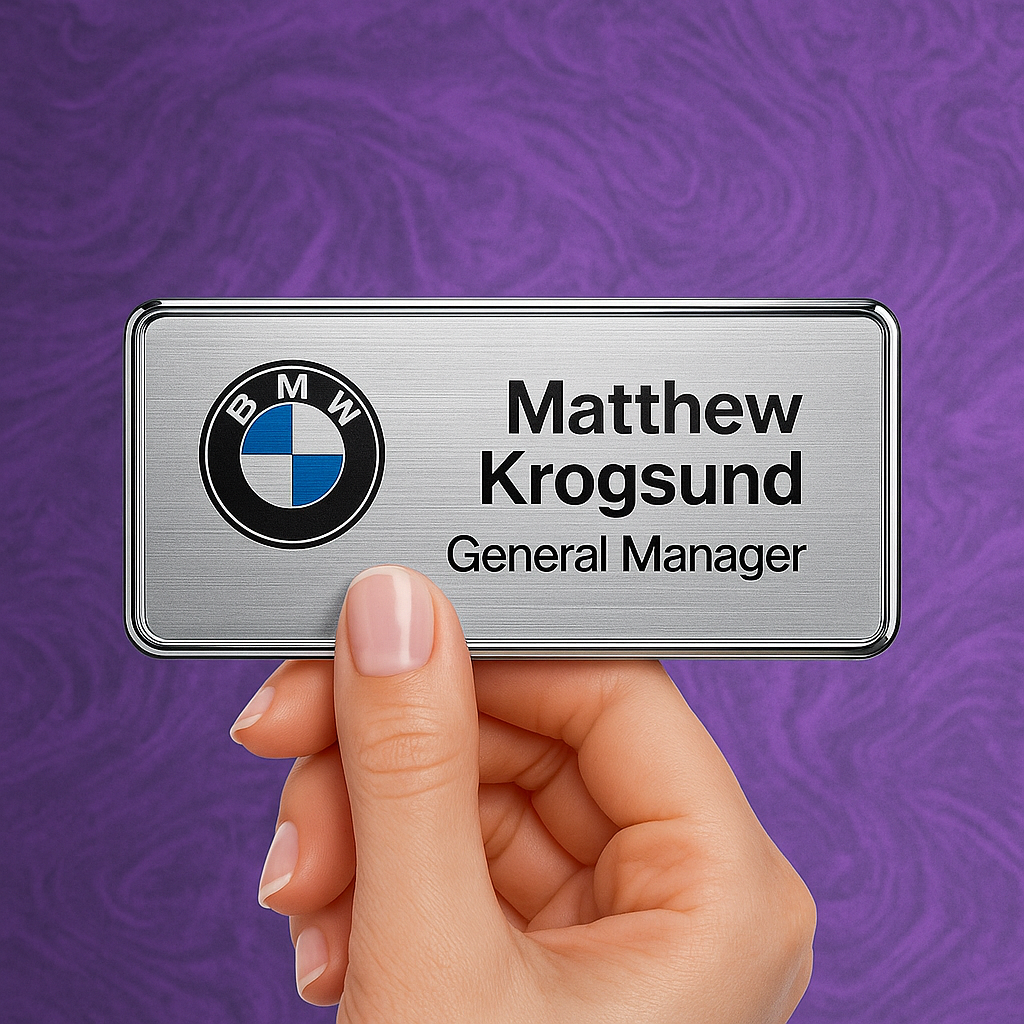
How Antimicrobial Badges Work
Silver ion technology embedded in badge materials provides continuous antimicrobial protection:
- 99.9% reduction: Eliminates bacteria within 24 hours of contact
- Permanent protection: Silver ions don't wash off or wear away
- FDA registered: Meets healthcare antimicrobial standards
- Safe for skin: Non-toxic and hypoallergenic materials
- Cost-effective: Adds only $2-3 per badge
Laboratory Testing Results
Independent lab tests show antimicrobial badges reduce surface bacteria by 99.9% compared to standard badges, significantly decreasing cross-contamination risk in medical settings.
Magnetic vs. Pin Fasteners: The Medical Professional's Dilemma
The fastener choice significantly impacts daily comfort and uniform longevity. Medical professionals wearing badges 8-12 hours daily need solutions that protect expensive scrubs and lab coats.
Why 89% of Medical Practices Choose Magnetic Fasteners
Pin Fasteners: The Hidden Costs
- Average scrub replacement: $45-80 per set
- Pin holes appear after 3-6 months
- Weakened fabric tears during washing
- Staff complaints about damaged clothing
- Potential needlestick injury risk
Annual uniform damage cost per employee: $180-320
Magnetic Fasteners: The Investment Return
- Zero fabric damage over badge lifetime
- Strong hold through lab coats
- Quick repositioning between garments
- No safety hazards
- Positive staff satisfaction
One-time investment: $2-3 per badge
Learn more about magnetic fastener technology
Compliance and Regulatory Considerations
Private practices must balance regulatory compliance with practical implementation. Understanding requirements helps avoid citations while maintaining efficiency.
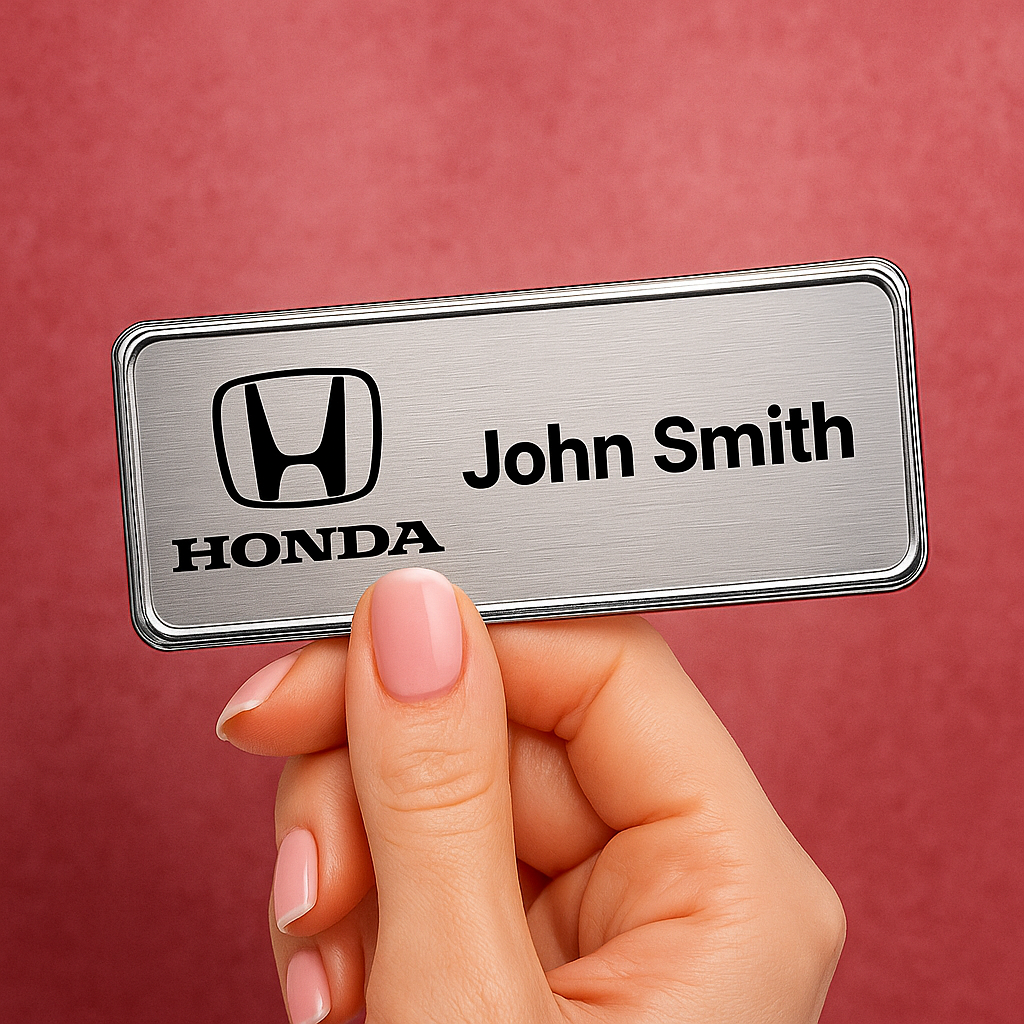
HIPAA-Compliant Badge Design
Badges must identify staff without exposing protected health information:
- Include: First name, last initial, professional title, practice logo
- Optional: Full last name, department, credentials
- Never include: Social security numbers, employee IDs, personal contact info
- Photo guidelines: Current within 2 years, professional appearance
State-Specific Requirements
Some states mandate specific badge information for healthcare workers:
| State |
Required Information |
Font Size Min. |
| California |
Name, license type, "Licensed" designation |
18-point |
| Texas |
Name, professional title |
16-point |
| New York |
Name, title, facility name |
14-point |
| Florida |
Name, license status |
16-point |
Cost Analysis: In-House vs. Professional Badge Services
Many practices consider producing badges internally but underestimate the true costs. This analysis helps practices make informed decisions.
Total Cost of Ownership Comparison
| Factor |
In-House Production |
Professional Service |
| Equipment |
$2,500-5,000 printer |
$0 |
| Software |
$500-1,000 annually |
$0 |
| Materials |
$3-5 per badge |
Included |
| Staff Time |
2 hours per 10 badges |
5 minutes ordering |
| Quality Issues |
15-20% remake rate |
< 1% remake rate |
| Cost per Badge (50/year) |
$45-65 |
$9-15 |
Verdict: Practices producing fewer than 500 badges annually save 70% by outsourcing to professional manufacturers.
Design Best Practices for Medical Badges
Effective medical badge design balances professionalism, readability, and brand representation while meeting compliance requirements.
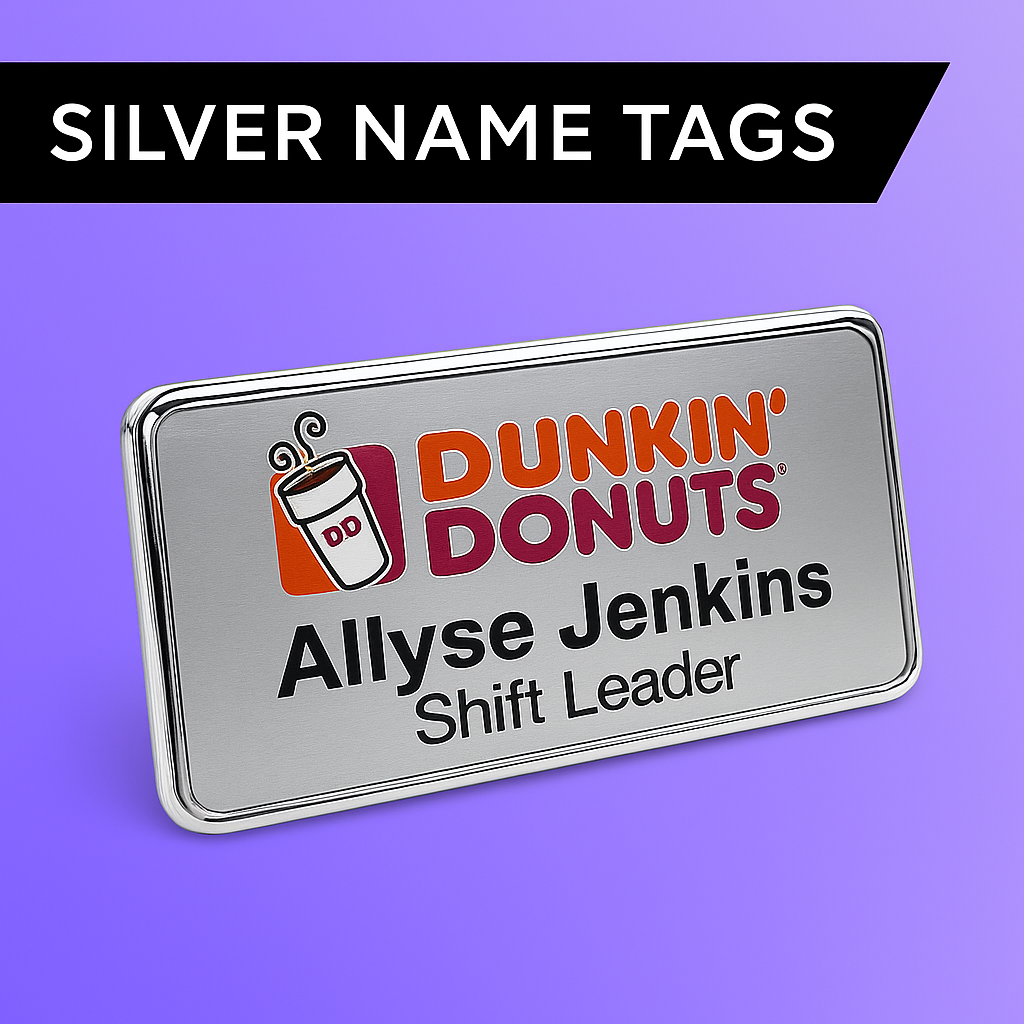
Typography and Readability Standards
- Name text: Minimum 18-point bold sans-serif font
- Title text: Minimum 14-point regular weight
- Contrast ratio: 7:1 minimum for accessibility
- Font selection: Arial, Helvetica, or Calibri for clarity
- Spacing: 15% white space minimum around text
Color Psychology in Medical Settings
Color choices influence patient perception and should align with practice specialty:
- Blue: Trust and calm - ideal for general practice
- Green: Healing and nature - perfect for wellness centers
- White/Silver: Cleanliness and precision - suited for surgical
- Purple: Compassion - appropriate for pediatrics
- Avoid red: Associated with emergency/danger in medical contexts
Implementation Timeline for New Badge Systems
Transitioning to professional badges requires planning. This timeline ensures smooth implementation without disrupting operations.
Week 1: Assessment
Count staff, identify roles, review compliance requirements, set budget
Week 2: Design
Create template, choose materials, select fasteners, approve proof
Week 3: Production
Manufacturing and quality control (3-5 business days)
Week 4: Deployment
Distribute badges, train staff on care, implement policies
Ordering Process for Medical Practices
Streamlined ordering ensures practices receive professional badges quickly without disrupting patient care.
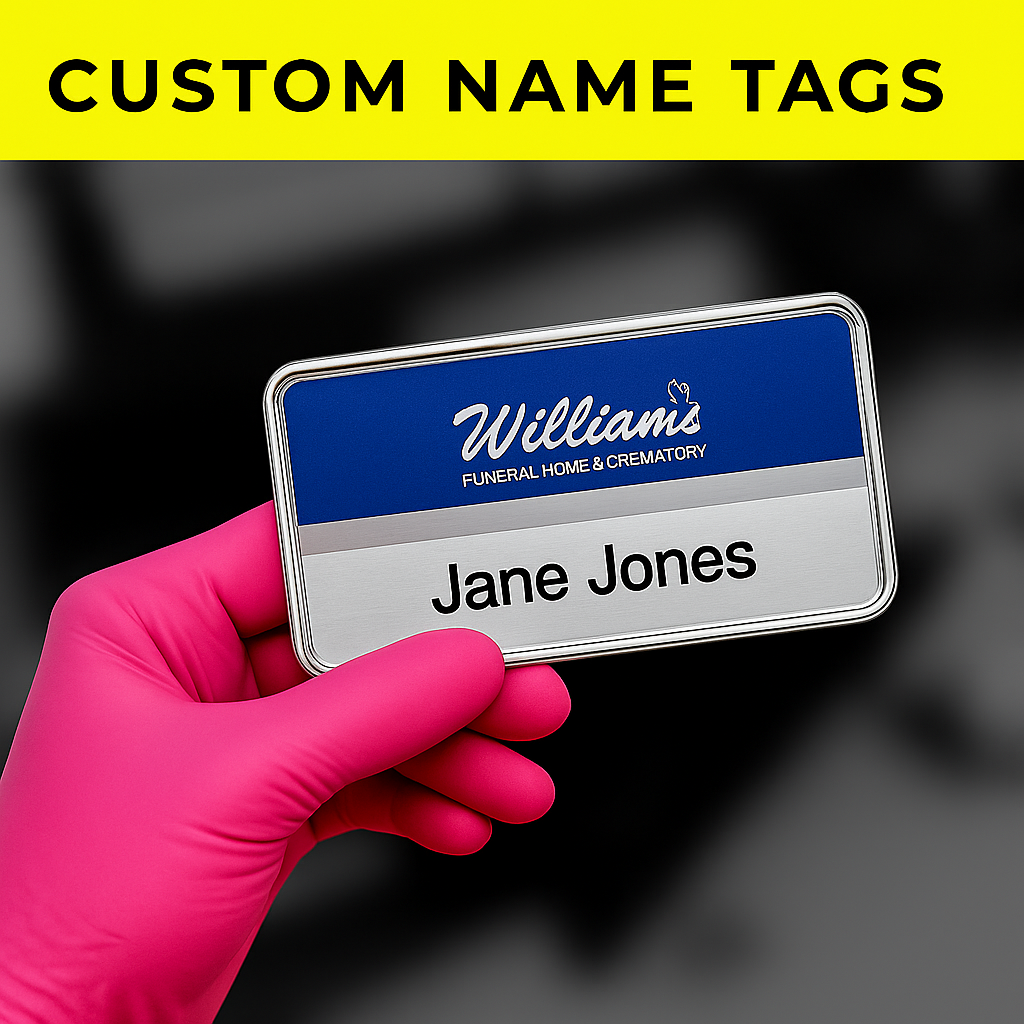
Step-by-Step Ordering Guide
- Gather Information: Staff names, titles, credentials, and preferred name formats
- Choose Materials: Consider durability needs and infection control requirements
- Select Design: Upload logo, choose colors matching practice branding
- Pick Fasteners: Magnetic recommended for medical environments
- Review Proof: Verify all information and approve digital mockup
- Place Order: Standard 3-5 day production, rush available
Common Ordering Mistakes to Avoid
- Credential errors: Verify current licenses and certifications
- Name preferences: Ask staff about nickname usage
- Logo quality: Use high-resolution files (300 DPI minimum)
- Rush timing: Order before last minute to avoid fees
- Quantity planning: Order extras for new hires
Frequently Asked Questions About Medical Practice Badges
Do private medical practices need name badges?
While not legally required in most states, professional name badges significantly improve patient trust, satisfaction, and practice reviews. Studies show 89% of patients prefer practices where all staff wear clear identification.
What's the best material for medical office badges?
Antimicrobial-coated plastic badges offer the best combination of durability, hygiene, and cost-effectiveness for most medical practices. They withstand frequent cleaning while maintaining professional appearance for 5-10 years.
How much do medical name badges cost?
Professional medical badges range from $9-15 for plastic with antimicrobial coating, or $20-30 for premium metal options. Magnetic fasteners add $2-3 but save hundreds in uniform replacement costs.
Can badges be rush ordered for new employees?
Yes, same-day and next-day production options are available for urgent needs. Standard production takes 3-5 business days. Rush fees typically add 50-100% to base price.
Should medical badges include photos?
Photos enhance security and help patients recognize providers between visits. While not required for private practices, photos increase patient comfort and reduce identity confusion in larger practices.
How do magnetic fasteners affect pacemakers?
Modern rare-earth magnetic fasteners are considered safe when worn at chest level. The magnetic field is too weak at that distance to affect pacemakers. However, staff should avoid placing loose magnets directly on pacemaker sites.
Ready to Enhance Your Practice with Professional Medical Badges?
Join thousands of private medical practices that trust NameBadge.com for professional, compliant identification solutions. Design your medical badges today with antimicrobial protection and magnetic fasteners.
Related Medical Badge Resources


